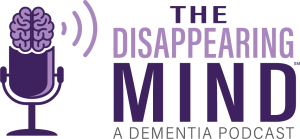How are aging and sleep related? According to the guidelines from National Sleep Foundation, people aged 65 and over are advised to get at least seven to eight hours of sleep each night. However, due to changes in the body as we approach the golden years, this becomes harder to achieve. We may experience body aches that affect the quality of our sleep. However, getting sufficient sleep is paramount to promoting the overall well-being of seniors. It is also the key to living a healthier and more fulfilling life! Learn about the Importance of getting sufficient rest for seniors.
Sufficient Rest Is Vital for Psychological Health
Sleep and mental health are closely interconnected. An insufficient amount of rest every night can lead to poor mental health, and increase the risk of conditions such as depression and anxiety. Research has shown that people who suffer from depression and anxiety tend to experience sleep disturbances that worsen their sleep quality. Therefore, this creates a vicious cycle of sleep deprivation. As such, when it comes to having good mental health, it can be as simple as getting sufficient rest every night.
Quality Sleep Strengthens Your Immune System
Thomas Dekker posited that “Sleep is that golden chain that ties health and our bodies together”. This rings true when we examine the relationship between sleep and immunological processes. First, sleep is essential for bolstering the immune system. A solid good night’s rest can boost seniors’ immune responses against pathogens. As such, this reduces the risk of age-associated health conditions like high blood pressure, cardiovascular disease, diabetes and obesity. Therefore, getting good-quality sleep each night is of paramount importance if seniors want to lead healthy, and disease-free lives!
Sufficient Rest Improves Cognitive Performance
According to a study conducted by the University of Nebraska’s Medical Center, cognitive decline associated with aging can be slowed down by practicing good sleep habits. Getting adequate sleep can sharpen focus and thinking skills, and prevent the impairment of high-level cognitive functions, such as decision-making and problem-solving.
On the other hand, lack of sleep is detrimental to brain health and brain functions. Without sufficient rest, the brain is unable to perform optimally and in the long run, sleep deprivation can lead to cognitive decline.
Sufficient Rest Is Essential for Leading a Fulfilling Life
Having sufficient rest will improve cognitive function and enable you to perform activities of daily living, which is crucial for leading an independent and fulfilling life. According to the Department of Neurological Sciences at the University of Nebraska, cognition is essential for functional independence and effective communication with others. When seniors are functionally independent, they’ll be able to maintain autonomy and are empowered to be self-sufficient.
Additionally, cognition function is vital for us to communicate effectively with others. When we have good communication skills, we will have the capability to socialize and form ties with others. As such, sufficient rest not only leads to physical and mental health benefits, but also enables us to live fulfilling lives.
According to the Department of Psychology at Virginia Commonwealth University, it is hard to find a domain of mental or physical functioning that is not dependent on sleep. Therefore, this underscores the paramount importance for seniors to get sufficient rest.








